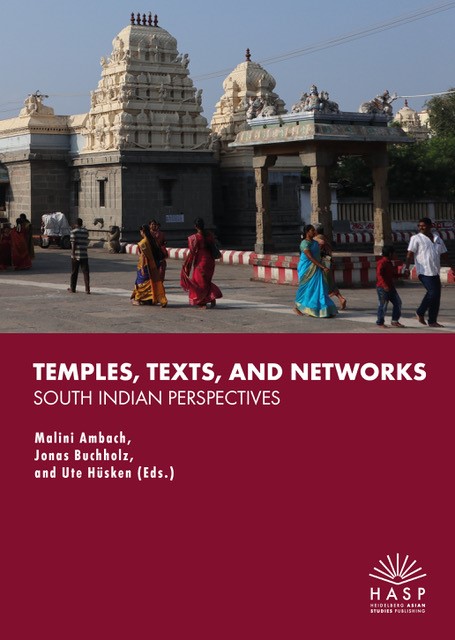
SAI-Search
 What happens when the world's largest democracy votes?
Podcast about the Indian Elections of 2024 (German only).
What happens when the world's largest democracy votes?
Podcast about the Indian Elections of 2024 (German only).
 Prof. Dr. Harun-or-Rashid: Bangabandhu Sehikh Mujibur Rahman (1920-75): His Political Thoughts and Ideals
Prof. Dr. Harun-or-Rashid: Bangabandhu Sehikh Mujibur Rahman (1920-75): His Political Thoughts and Ideals


Home > |
 We would like to draw your attention to the publication of the volume Temples, Texts, and Networks: South Indian Perspectives, edited by Malini Ambach, Jonas Buchholz, both Heidelberg Academy of Sciences, Project Hindu Temple Legends, and Ute Hüsken, Head of the Department of Cultural and Religious History of South Asia at SAI, The volume was recently (2022) published in Open Access by Heidelberg Asian Studies Publishing and PDFs of the entire book or individual chapters can be downloaded at https://doi.org/10.11588/hasp.906. To talk about the volume, Jonas Buchholz and Ute Hüsken were guests on the New Book in Indian Religions Podcast. The episode can be listened to at https://newbooksnetwork.com/malini-ambach-et-al-temples-texts-and-networks-south-indian-perspectives-hasp-2022 and on all podcast platforms.
We would like to draw your attention to the publication of the volume Temples, Texts, and Networks: South Indian Perspectives, edited by Malini Ambach, Jonas Buchholz, both Heidelberg Academy of Sciences, Project Hindu Temple Legends, and Ute Hüsken, Head of the Department of Cultural and Religious History of South Asia at SAI, The volume was recently (2022) published in Open Access by Heidelberg Asian Studies Publishing and PDFs of the entire book or individual chapters can be downloaded at https://doi.org/10.11588/hasp.906. To talk about the volume, Jonas Buchholz and Ute Hüsken were guests on the New Book in Indian Religions Podcast. The episode can be listened to at https://newbooksnetwork.com/malini-ambach-et-al-temples-texts-and-networks-south-indian-perspectives-hasp-2022 and on all podcast platforms.
The contents of the volume:
For many centuries, Hindu temples and shrines have been of great importance to South Indian religious, social and political life. Aside from being places of worship, they are also pilgrimage destinations, centres of learning, political hotspots, and foci of economic activities. In these temples, not only the human and the divine interact, but they are also meeting places of different members of the communities, be they local or coming from afar. Hindu temples do not exist in isolation, but stand in multiple relationships to other temples and sacred sites. They relate to each other in terms of architecture, ritual, or mythology, or on a conceptual level when particular sites are grouped together. Especially in urban centres, multiple temples representing different religious traditions may coexist within a shared sacred space. The current volume pays close attention to the connections between individual Hindu temples and the affiliated communities, be it within a particular place or on a trans-local level. These connections are described as "temple networks," a concept which instead of stable hierarchies and structures looks at nodal, multi-centred, and fluid systems, in which the connections in numerous fields of interaction are understood as dynamic processes.